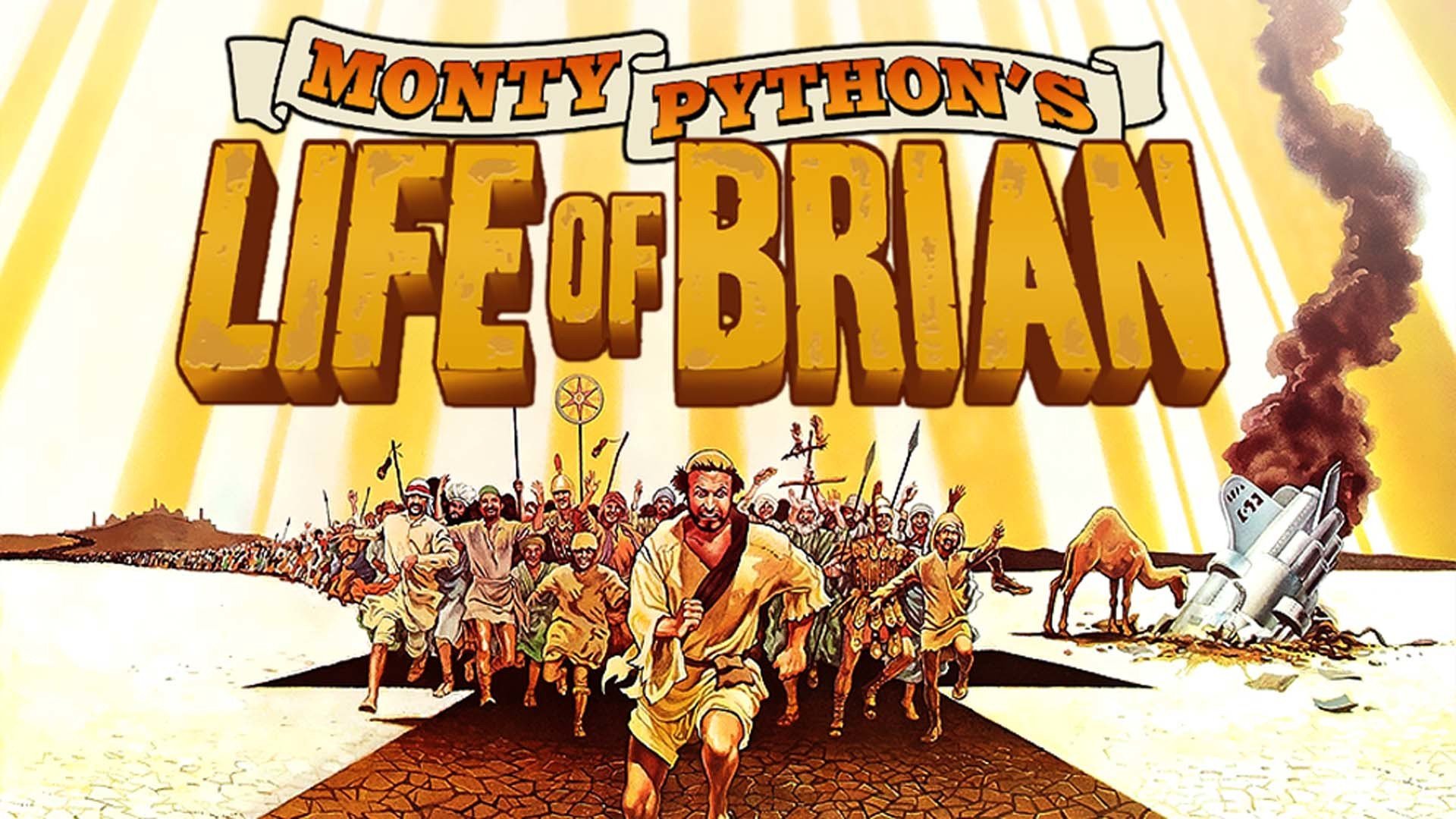
Welcome to the fascinating world of the movie “Life of Brian”! In this article, we will dive into the depths of this iconic film and uncover 44 intriguing facts that you may not know about it. “Life of Brian” is a satirical comedy film released in 1979, written and performed by the legendary comedy group, Monty Python. Directed by Terry Jones, the movie follows the life of Brian Cohen, a reluctant messiah born on the same day as Jesus Christ in Roman-occupied Judea. With its irreverent humor and thought-provoking commentary, “Life of Brian” is a classic that continues to captivate audiences to this day. So, get ready to discover some little-known tidbits about this comedic masterpiece as we journey through its creation, controversies, and enduring legacy.
Key Takeaways:
- Life of Brian” is a British comedy film that faced controversy but became a box office success, showcasing British humor and clever satire, leaving a lasting impact on audiences worldwide.
- The movie features multiple roles played by the actors, clever wordplay, and a satirical take on blind devotion, making it a comedic masterpiece with an enduring legacy.
The Life of Brian is a British comedy film released in 1979.
This movie, directed by Terry Jones and written by Jones and Michael Palin, is a satire that tells the story of Brian Cohen, a young Jewish man who is born on the same day as Jesus Christ and is mistaken for the Messiah.
It faced controversy upon its release.
Due to its religious themes and comedic portrayal of Jesus Christ, the movie faced widespread criticism and was even banned in several countries.
Monty Python’s involvement.
The Life of Brian was produced by Monty Python, the renowned comedy group known for their surreal and irreverent humor.
The movie was a box office success.
Despite the controversy, the film was a commercial success, grossing over million worldwide.
Multiple roles played by the actors.
In traditional Monty Python style, the actors played multiple roles in the movie. For instance, Graham Chapman played the lead role of Brian Cohen as well as other characters like Biggus Dickus.
Brian’s accidental cult following.
Over the years, the character of Brian Cohen has gained a cult following and has become an iconic figure in popular culture.
Filmed on location in Tunisia.
The movie was shot on location in Tunisia, which provided the perfect backdrop for the biblical setting.
Music by George Harrison.
George Harrison, the former member of The Beatles, served as the executive producer and contributed financially to the movie. He also wrote and performed songs for the film.
The famous “Always Look on the Bright Side of Life” song.
One of the most memorable moments in the movie is the song “Always Look on the Bright Side of Life,” which has since become a popular anthem.
Dialogue improvised by the actors.
The movie featured a lot of improvised dialogue, allowing the actors to showcase their comedic talents.
John Cleese’s appearance.
Although not credited, John Cleese made a surprise cameo appearance as the wise man at the manger.
Coinciding release with “Life of Jesus” documentary.
Interestingly, the release of The Life of Brian coincided with the release of a documentary titled “The Life of Jesus,” leading to some confusion among moviegoers.
Parallels with historical events.
The movie’s depiction of religious and political fanaticism has drawn parallels with real-life events and controversies.
Cultural impact.
The Life of Brian has had a lasting cultural impact and is often cited as one of the greatest comedy films of all time.
The controversial tagline.
The original tagline for the movie was “He wasn’t the Messiah. He was a very naughty boy!” which further fueled the controversy surrounding the film.
Accolades and recognition.
The film received various accolades, including a nomination for the BAFTA Award for Best Original Screenplay.
Multiple versions of the script.
Terry Jones and Michael Palin wrote numerous drafts of the script before finalizing the screenplay.
The iconic “Biggus Dickus” scene.
The scene featuring Brian being interrogated by the Roman guards and the hilarious encounter with the character Biggus Dickus has become one of the movie’s most memorable moments.
Political and religious satire.
The Life of Brian uses comedy to satirize not only religious institutions but also political systems and societal norms.
International re-release in 2004.
In 2004, the movie was re-released in cinemas around the world, allowing a new generation of audiences to experience its comedic brilliance.
Cinematic influences.
The movie draws inspiration from classic biblical epics, blending them with Monty Python’s unique brand of humor.
Clever wordplay.
The film is full of clever wordplay and puns that add another layer of humor to the already absurd situations.
The controversial use of religious iconography.
The film features scenes that depict religious figures, symbols, and events in a comedic context, which generated considerable controversy at the time of its release.
Historical inaccuracies.
Despite being set in biblical times, the movie purposely includes anachronisms and historical inaccuracies for comic effect.
Satirical take on blind devotion.
The Life of Brian satirizes blind devotion to religious and political leaders, highlighting the absurdity of unwavering belief.
The ending sequence.
The movie ends with a crucifixion scene, which is turned into a comedic spectacle, challenging conventional representations of this religious event.
Banned in some countries.
The film was banned in several countries due to its controversial content. However, it later gained recognition as a significant work of satire.
The character Reginald, played by John Cleese.
Reginald is a member of the People’s Front of Judea and delivers the memorable line, “What have the Romans ever done for us?
Political commentary.
The Life of Brian makes biting social and political commentary, using humor as a tool to expose the absurdities of power and authority.
The stoning scene.
The movie showcases a darkly humorous stoning scene, satirizing the unforgiving nature of mob mentality and religious zealotry.
The character of Judith, played by Sue Jones-Davies.
Judith is a member of the Judean People’s Front who challenges traditional gender roles in biblical society.
The comedic timing of the actors.
The ensemble cast of Monty Python delivers impeccable comedic timing, enhancing the film’s comedic impact.
Cultural references.
The movie is filled with clever references to historical events, literature, and popular culture, adding depth to the comedy.
The character of Mandy, played by Terry Jones.
Mandy is a member of the People’s Front of Judea and delivers the memorable line, “I want to be a woman. From now on, I want you all to call me Loretta.
The absurdity of the Messiah misconception.
The movie satirizes the human tendency to search for messianic figures and the absurdity of mistaking an ordinary man like Brian for the Messiah.
Detailed historical research.
Despite its comedic nature, the film’s creators undertook extensive research to ensure accurate depictions of biblical and historical settings.
The famous “Bigus Dickus” blooper.
During filming, the actors struggled to maintain their composure in the infamous “Biggus Dickus” scene, resulting in several blooper takes.
Religious institutions’ response.
Many religious institutions condemned The Life of Brian, viewing it as blasphemous and offensive. However, others appreciated it as a work of satire.
The character of Mrs. C, played by Terry Gilliam.
Mrs. C is a minor character but provides comic relief with her outrageous facial expressions and mannerisms.
The use of absurdist humor.
The Life of Brian relies heavily on absurd humor, subverting expectations and challenging established norms.
Influential in the comedy genre.
The film’s success paved the way for future comedies to explore controversial subject matters and push the boundaries of comedy.
The character of Stan, played by Eric Idle.
Stan is a member of the People’s Front of Judea who raises the question of transgender rights in ancient society.
A showcase of British humor.
The Life of Brian exemplifies the distinct style of British humor, characterized by its wit, irreverence, and satirical edge.
The enduring legacy.
The Life of Brian continues to be celebrated as a comedic masterpiece, continuing to influence and inspire generations of filmmakers and comedians.
So there you have it, 44 fascinating facts about the movie “Life of Brian.” From its controversial release to its enduring legacy, this comedy classic has left a lasting impression on audiences worldwide. Whether you’re a fan of British humor or simply appreciate clever satire, there’s no denying the impact of this iconic film. So grab some popcorn, sit back, and enjoy the irreverent comedy that is “Life of Brian”!
Conclusion
In conclusion, “Life of Brian” is a groundbreaking film that has left a lasting impact on the world of cinema. With its sharp wit, clever satire, and fearless exploration of religious themes, the movie continues to be recognized as one of the greatest comedy films ever made. The incredible performances, brilliant writing, and thought-provoking concepts make “Life of Brian” a timeless classic that is still relevant today. Whether you’re a fan of Monty Python or simply enjoy brilliant storytelling, this film is a must-watch. So, grab some popcorn, settle in, and prepare to embark on a hilarious and thought-provoking journey with “Life of Brian.”
FAQs
1. Is “Life of Brian” a Monty Python movie?
Yes, “Life of Brian” is a comedy film written, directed, and performed by the legendary British comedy group Monty Python.
2. What is the movie “Life of Brian” about?
Life of Brian” is a satire that follows the life of Brian Cohen, who is mistakenly hailed as the messiah in the biblical setting of Jerusalem during the time of Jesus.
3. When was “Life of Brian” released?
The film was released on August 17, 1979.
4. Is “Life of Brian” controversial?
Yes, the movie sparked controversy upon its release due to its religious themes and satirical portrayal of Jesus and Christianity. Some religious groups deemed it blasphemous, while others praised its social commentary.
5. Can “Life of Brian” be enjoyed by non-Monty Python fans?
Absolutely! While being a Monty Python fan might enhance the viewing experience, the film’s sharp humor and clever writing make it enjoyable for anyone who appreciates brilliant comedy and satire.
If you enjoyed learning about the hilarious world of Monty Python's Life of Brian, why not explore more comedic gems? Dive into the uproarious antics of Monty Python's live performance at the Hollywood Bowl. Discover the biting satirical wit of Andy Borowitz's work. Or, experience the laughter-filled atmosphere of Melbourne's premier comedy festival. Each offers a unique perspective on humor, guaranteed to tickle your funny bone. So, whether you prefer surreal sketches, clever political commentary, or a smorgasbord of stand-up acts, there's something for every comedy enthusiast to enjoy.
Was this page helpful?
Our commitment to delivering trustworthy and engaging content is at the heart of what we do. Each fact on our site is contributed by real users like you, bringing a wealth of diverse insights and information. To ensure the highest standards of accuracy and reliability, our dedicated editors meticulously review each submission. This process guarantees that the facts we share are not only fascinating but also credible. Trust in our commitment to quality and authenticity as you explore and learn with us.


